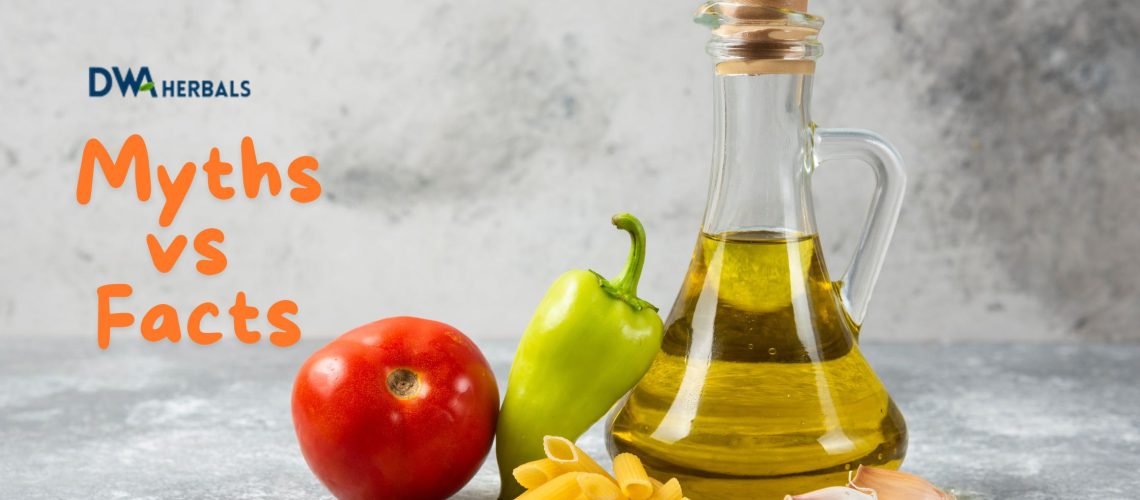
Vegetable oils are a staple in kitchens around the world, used for cooking, baking, and as ingredients in countless food products. Despite their ubiquity, there are many myths and misconceptions surrounding vegetable oils.
This blog will clarify some common myths and present the facts to help you make informed choices about the oils you use.
Fact: Not all vegetable oils are created equal. While some oils, such as partially hydrogenated oils, can be unhealthy due to trans fats, many vegetable oils contain beneficial fats. Oils like olive oil, canola oil, and avocado oil are rich in monounsaturated and polyunsaturated fats, which can improve heart health when used in moderation. The key is choosing the right type of oil and using it appropriately.
Fact: Cooking at very high temperatures can cause any oil to degrade and produce harmful compounds. However, most vegetable oils, when used within their smoke points, are safe for cooking. For instance, olive oil has a moderate smoke point suitable for sautéing and baking, while oils with higher smoke points like canola, peanut, and sunflower oil are better for frying. The key is to avoid overheating the oil beyond its smoke point.
Fact: The presence of trans fats in vegetable oils is largely due to the process of partial hydrogenation, which has been significantly reduced or eliminated in many countries due to health regulations.
Most pure vegetable oils, such as olive oil, canola oil, and sunflower oil, contain negligible to no trans fats. Always check labels to ensure the oil you choose is free from partially hydrogenated fats.
Fact: Coconut oil has gained popularity due to claims of its health benefits, particularly its medium-chain triglycerides (MCTs). However, it is also high in saturated fat, which can raise LDL cholesterol levels.
While it can be used in moderation, especially in recipes where its flavor is desired, it’s not necessarily the healthiest option compared to oils high in unsaturated fats like olive or avocado oil.
Fact: Some believe that vegetable oils, particularly those high in omega-6 fatty acids like soybean and corn oil, contribute to inflammation. However, omega-6 fatty acids are essential for the body and only cause inflammation when consumed in excessive amounts without a balance of omega-3 fatty acids. Using a variety of oils and incorporating omega-3 rich foods like fish, flaxseed, and walnuts can maintain a healthy balance.
Fact: Cold-pressed and expeller-pressed oils are extracted without chemical solvents and are often seen as more natural and nutritious. While these methods can preserve more nutrients and flavors, it doesn’t automatically make the oil healthier for every use. Some refined oils can be more stable and suitable for high-heat cooking. The choice depends on your specific cooking needs and preferences.
Vegetable oils can be part of a healthy diet when used wisely. Here are some tips for incorporating them healthily:
Vegetable oils are a diverse group of products that can fit into a healthy diet when used appropriately. By understanding the myths and facts about these oils, you can make informed choices that enhance your cooking and contribute to your overall health. Whether drizzling olive oil over a salad or using canola oil for frying, the key is to select high-quality oils and use them in moderation as part of a balanced diet.
Dr Sushil is a researcher and founder of D WA Herbals with objective of providing healthy longevity to society. His aim is to develop food and drink-based products by using the inherent qualities of traditional herbs by optimizing their effect through modern technology, making our products extremely user-friendly. The research is focused on various lifestyle issues such as anxiety, stress, metabolism, digestion, immunity and may more which impact the health and lifestyle.
© 2023 DWA HERBALS. All Rights Reserved. Designed by NXlogy